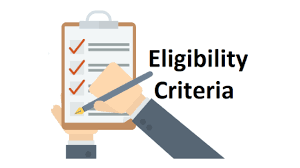FULL-TIME | 16 WEEKS
Python
Future-Proof Your Skills: Python Course for the Modern Developer.
Python is one of the most widely used programming languages in present times. It is a versatile language with a rich set of libraries that are used in many application areas like data science, web development, game development, scientific computing, machine learning, and eCommerce. Our Python course can help you become proficient in using this in-demand language and succeed as a Python developer.
Languanges and Frameworks covered






Program Details

The Python Course is a 16-Weeks immersive program and is open to 18+ years old candidates with a minimum of post secondary Education.
Regardless of your current level of coding knowledge, New to code or know abit, this course is designed to guide you from foundational skills to industry-ready proficiency.

Somakodi offers some of the most competitive payment options, with a range of flexible payment plans and also offer Scholarships opportunities.
Tuition fee for the program is:
Kes. 70,000.00

Each individual's career journey is unique, which is why we our career coach team offer 1-on-1 personalized support.
They will help you in navigating your distinct career path to securing your first job. We help with resume review, mock interviews, personal branding, and strategies to stand out as a candidate.

We provide blended learning that integrates state-of-the-art technologies in course delivery, combining online resources, in-person class sessions, and real-world projects.
Our programs take a holistic approach, teaching both the latest technologies and problem-solving techniques. We’ll teach you how to code, but also how to learn and adapt

Our curriculum is regularly reviewed by industry partners and professionals to ensure we are teaching the most in-demand and relevant job skills.
Our programs are immersive and accelerated, giving learners the option to pursue a full-time course within 6months to quickly start a new career.

You'll have the opportunity to work on practical projects both individually and in collaborative pairs or groups.
This hands-on experience is aimed at preparing you for real-world project scenarios. By the end of the course, you'll have crafted a portfolio showcasing tangible, real-world projects, enriching your profile and enhancing your employability.
Program Curriculum
-
Unit 1
Programming and Python Fundamentals
Gain an introduction to programming and Get acquainted with Python fundamentals.
• Explore the concept of variables and differentiate between variable types.
• Create and re-assign numerical variables using common naming guidelines and numerical operators.
• Re-assign variables using variables and shorthand assignment operators.
• Create string variables, concatenate strings, and print complex structures. -
Unit 2
Control Flow
• Define control flow and describe scenarios in which control flow would be helpful.
• Explore logical comparison. Explain different comparison and equality operators and use them to evaluate and compare statements.
• Get acquainted with Booleans, use if/elseif/else conditionals to control program flow based on Boolean conditions, and use comparison operators in conditionals.
• Create and manipulate lists, adding and removing elements and printing out elements/list lengths.
• Understand the use of loops in programming. Use for loops to iterate lists and range() to dynamically generate loops.
• Explain while loops and their best use cases. Use while loops to control program flow.
• Dive into functions, identifying use cases, creating and calling functions, and returning values.
• Utilize parameters and arguments in functions. Implement keyword arguments. -
Unit 3
Object-Oriented Programming in Python Full-Stack Development
• Define object-oriented programming and provide examples of what could be described as an object.
• Differentiate between keys and values. Compare and contrast dictionaries and lists. Use dictionaries to solve common problems in Python.
• Distinguish between lists and sets. Create variables that hold sets. Use sets to determine the frequency of elements.
• Compare and contrast classes and objects. Define classes. Instantiate objects from classes.
• Explain the use of the __init__ method. Understand class variables versus instance variables. Create classes with default instance variables.
• Implement inheritance. Describe what has been inherited from one class to another and when to use inheritance. -
Unit 4
Common Python Troubleshooting
• Define variable scope and explain the order of scope precedence that Python follows when resolving variable names. Use the global keyword to access global variables.
• Understand common types of errors and use print statements to troubleshoot. Implement the try-except code to handle errors.
• Define when floats are created, use escape characters, and perform basic data type conversion.. -
Unit 5
Intermediate Python
Expand upon the previous lab, applying I/O, code abstraction, and libraries to a Python program.
• Get acquainted with key components of intermediate Python coding, such as scripting, abstraction, modules, and libraries and APIs.
• Define the uses of scripting and write scripts that perform file I/O and take user input.
• Explore code abstraction. Use itertools to implement efficient looping and list comprehensions to concisely create lists.
• Add libraries and modules to Python programs. Create programs utilizing PyTime. Navigate library documentation.
• Describe what an application programming interface (API) is and why we might use one. Identify common APIs on the web. Call APIs. -
Unit 5
Introduction to Data Science
Explore how Python is used by data scientists through a case study.
• Use Pandas to read in data sets. Understand the integrity and characteristics of data sets. Filter, sort, and manipulate DataFrames and Series.
• Describe why data visualization is important. Identify the characteristics of a great data visualization. Identify when you would use bar charts, pie charts, scatterplots, and histogramsExpand upon the previous lab, applying I/O, code abstraction, and libraries to a Python program.
• Implement different types of graphs on a given data set using Pandas. Identify and handle missing values with Pandas.
• Implement groupby() statements for specific segmented analysis. Use apply() functions to clean data with Pandas. -
Unit 5
Introduction to Web Applications
Explore how Python is used by web developers with a case study.
• Differentiate between web applications, websites,front-end, and back-end. Apply basic HTML and CSS.
• Define Flask, understand how values are passed between websites and the Flask back-end, and create simple Flask websites.
• Create routes using Flask. Pass variables into routes.
• Implement simple templates in Flask apps. Pass variables into templates. -
Soft Skills
During the software engineering class, students engage in a unit dedicated to developing soft skills essential for their career advancement. This unit focuses on enhancing various aspects, including self-leadership, effective collaboration, impactful communication, entrepreneurial mindset, proficient project management, and career readiness. By honing these skills, students not only strengthen their professional capabilities but also improve their adaptability, problem-solving abilities, and overall employability in the dynamic field of software engineering.
-
Career Development
Beyond Somakodi
Together, we navigate your journey. Throughout your Somakodi bootcamp and beyond, collaborate with our dedicated Career Services team to initiate your career path within a structured and accountability-driven setting. Beyond interactions with peers and Career Services team members, you'll gain access to an array of top-tier career coaching services. These services have proven effective for numerous Somakodi bootcamp graduates, facilitating successful transitions into the job market and career changes.
You will gain profiency in!
API Development
Design relational databases to establish a resilient data layer, and engineer a bespoke REST API for efficient data distribution to your front-end applications.
Build Software Products
Create sophisticated, stylish software and web solutions that precisely meet client requirements with creativity and precision, delivering exceptional products and services.
Use Software Engineering Tools
You will develop the key coding skills and profiency in use of resources used by Python Developer professionals every day to build better products and solve problems quickly and efficiently.
Version Control
Collaborate effectively and efficiently with other Software Developers and deliver on a truly collaborative full-stack development project by building a complete web application.
DevOps
Gain expertise in the optimal practices of software development and operations, maximizing efficiency and enhancing quality throughout the software development process.
Launch Your New Career
Define your career goals and practice and refine your presentation and communication skills and prepare to present yourself and your work to potential employers as you kick off your job search
Application process!
Submit Your Application!
The first step is to fill out a written application. Once submitted, you will receive prompts from the admissions team to schedule an interview and take an aptitude assessment.
Application Review!
During the interview a member of the admissions team will learn about your learning needs, career goals, and help you decide whether the program is the right fit for you. If you passed your assessment, we will give you the admissions decision after your interview.
Admission!
Selected candidates can begin the program within 1-2 weeks. If you would like to connect with a member of our team, please simply reach out via +254-710-350885 or admissions@somakodi.com and schedule a chat with one of our Admissions representatives.


